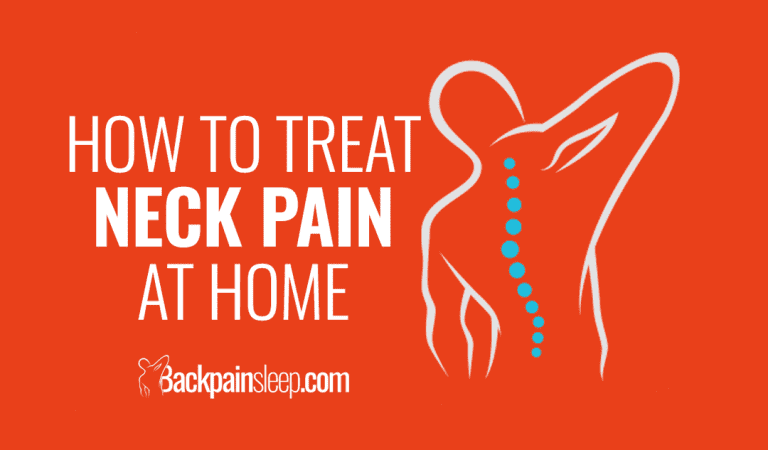Please review this article about tension headaches and neck pain.
Severe neck pain after sleeping?
Severe neck pain after sleeping is common. If you sleep with your neck unsupported or in the wrong position, night after night, week after week… year after year… you are opening up a pandora’s box of long-term issues that can have a significant impact on the quality of your daily life. If you have severe neck pain after sleeping, taking action can help reduce or eliminate your pain, and the good news? Simple changes can make a huge difference.
Is there the best sleeping position for neck pain?
Sleeping in the wrong position can place unnecessary strain on your muscles, vertebrae and cervical discs. , including sleeping on your stomach, back or side.Your neck comprises vertebrae extending from the skull to the upper body. Our cervical discs absorb lots of pressure between the bones.
Bones, muscles and ligaments support your head and allow for a large range of movement. An injury, inflammation or an anomaly may cause neck pain.
Lots of us will experience neck pain in our lives, and in most cases, it’s our fault! Poor posture is the main culprit; if you’re glued to your electronic devices for hours on end, something has got to give. More obvious causes are sports injuries, whiplash and so on…
Self-generated neck pain can usually be resolved in a few days to a week with some postural changes and some administered massage you can get your neck to stop hurting, but in some instances, it may signify a more serious problem or illness and need checking over by a medical professional. If your neck pain lasts for more than a week, or is very painful, and you have other symptoms, get yourself seen by a medical professional straight away.
Muscle strain and tension
Ordinarily due to activities and bad habits such as:
- poor posture (#1 culprit!)
- sitting at a desk for hours without adjusting the position
- sleeping with your neck in an awkward position
- wrenching your neck during exercise
Injury
The neck is especially vulnerable to trauma, especially in falls, auto accidents, and sports, where the neck is forced out of its natural range of motion. Your neck muscles and ligaments can’t cope.
If neck vertebrae (cervical vertebrae) are broken and compromised, the spinal cord can also be injured. Neck injuries due to unexpected jerking of the head are commonly referred to as whiplash.
Meningitis
Meningitis is a severe, life-threatening condition and a medical emergency. It’s an inflammation of the delicate tissue surrounding our brains and spinal cord. Someone who has meningitis will display a fever, and a headache often occurs with a stiff neck. Seek help immediately if you or someone you know has symptoms.
Different causes
Other causes of neck pain may include the following:
- Rheumatoid arthritis causes painful swelling of the joints and bone spurs. If these occur in the neck, then the pain will likely result.
- Osteoporosis weakens bones, leading to small fractures. Found mainly in the hands or knees, it can occur in the neck.
- Fibromyalgia causes muscle pain throughout the body, particularly in the neck and shoulder area.
- Spondylosis, our cervical discs may degenerate with age, like all spinal discs, narrowing the space between the vertebrae.
- Herniated cervical disk When a disk herniates, it can pressure the spinal cord or nearby nerve roots. Commonly known as a slipped disc.
- Spinal stenosis happens when the spinal column narrows and causes pressure on the spinal cord or surrounding nerve roots exiting the vertebrae.
In very rare cases, neck stiffness or pain can be due to:
- genetic abnormalities
- an infection
- abscesses
- tumors
- cancer
Treatment options for neck pain depend on the diagnosis. In addition to a physical exam by your medical professional, you may need one or a combination of the following imaging studies to discover the cause of your neck pain:
- blood tests
- CT scans
- MRI scans
- X-rays
- electromyography, this test checks the health of your muscles and the nerves that control them
- lumbar punch (spinal tap)
Depending on the results, you may be referred to a specialist. Treatments for neck pain can include:
- ice and heat
- physical therapy
- medication
- corticosteroid injections
- relaxant medication
- neck collar
- neck traction
- antibiotics
- hospital treatment
- surgery, which is very rare
Alternative therapies include:
- acupuncture
- chiropractic treatment
- massage (our favorite)
- TENS
If you have minor neck pain or it feels a little stiff, here’s a few ways you can help relieve it:
- Massage!
- Apply ice for the first few days (48-72hrs). After that, apply heat.
- Take OTC pain relievers, such as ibuprofen or acetaminophen.
- Take a time-out from anything that increases your pain.
- Exercise your neck daily, stretch a little.
- Be conscious of your neck posture.
- Don’t sit in one position for too long.
- TRY this unique neck pillow.
Poor posture and muscle strain are the main culprits that cause neck pain, but if you pay attention to healthy posture and give your neck a break (excuse the pun) when it’s sore, then you’ll be on the road to recovery.
Find out the best way to sleep for back and neck pain.
As always, see your doctor if your neck pain isn’t giving you a break;O)




